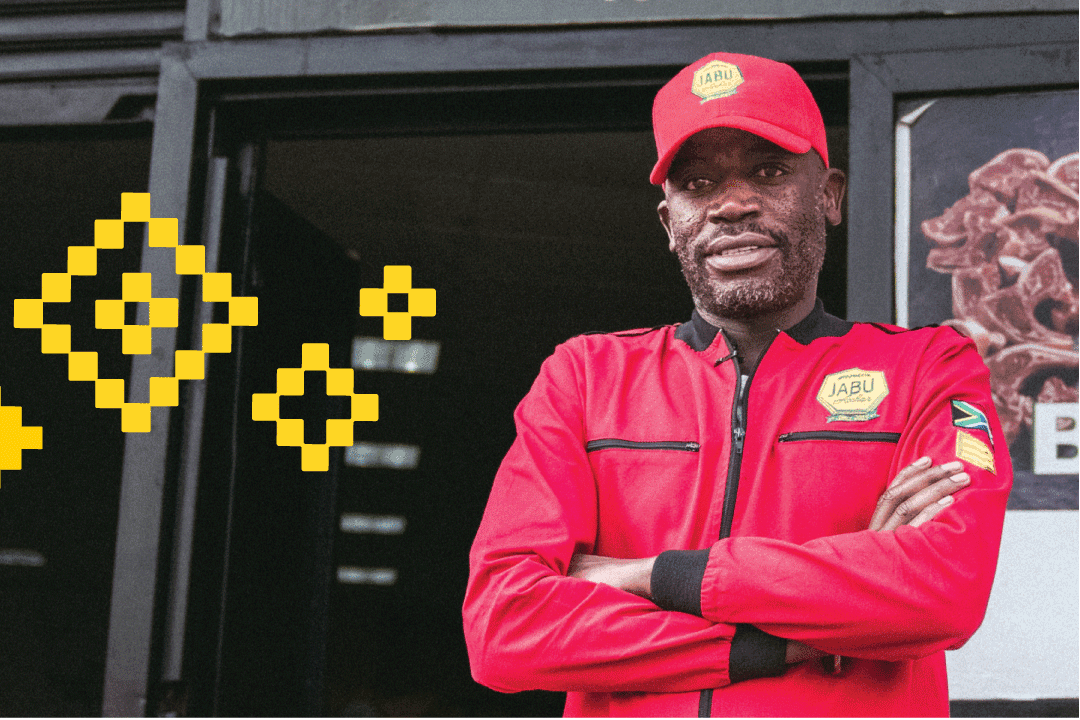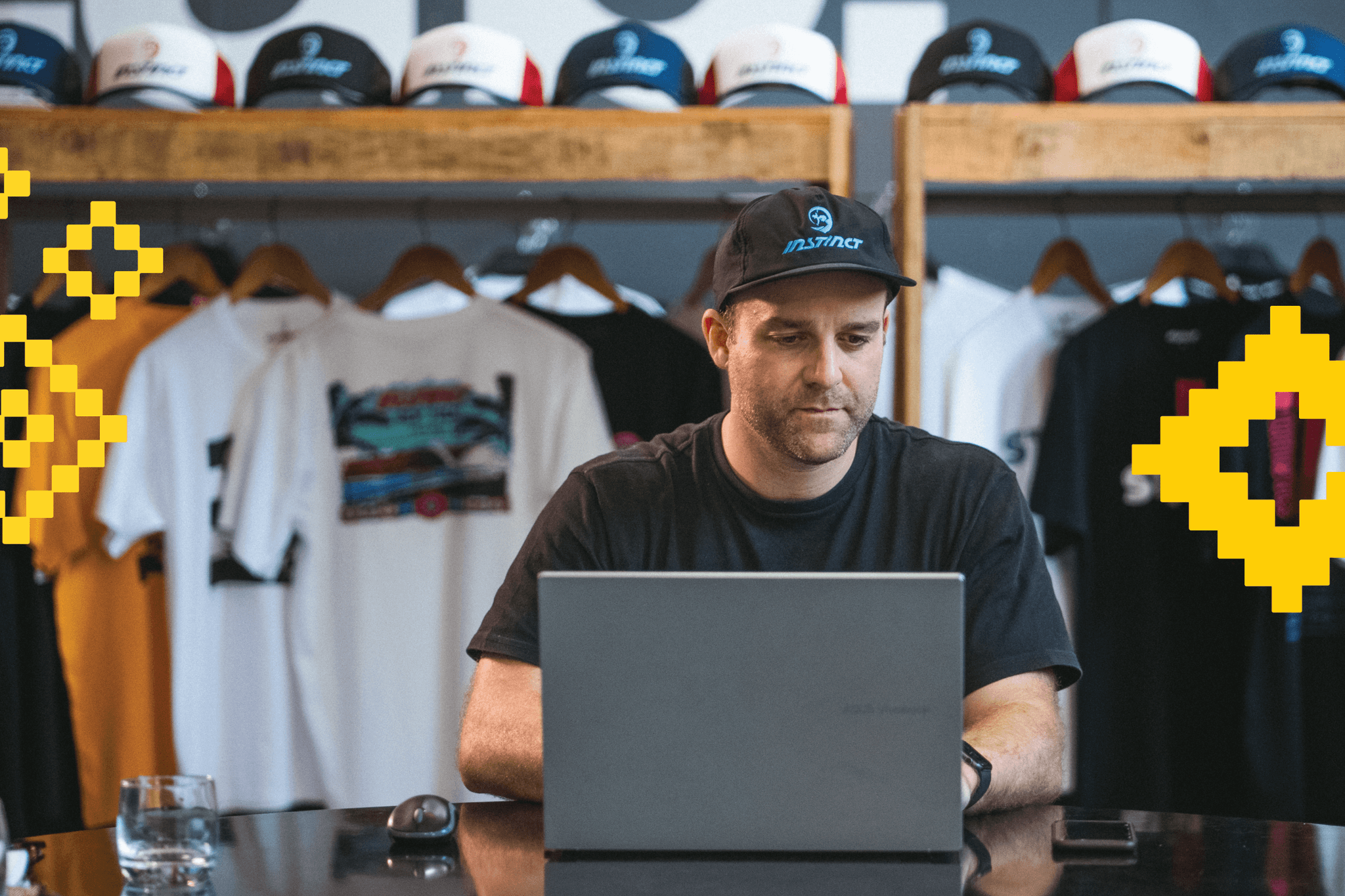
Cash Flow in Crisis: The Mental Toll on Business Owners
The psychological impact of poor cash flow on entrepreneurs.
BY Sarah Heron
Table of Contents
- Introduction
- The silent pressure behind the numbers
- Signs it’s time to pause and check in
- You’re in the thick of it. Now what?
- 1. Face the facts without shame
- 2. Ask for support
- 3. Get back to basics: Look after yourself
- 4. Break big problems into small wins
- 5. Focus on what you can control
- Don’t lose sight of your ‘why’
- It’s okay to struggle. It’s not okay to give up on yourself.
Running a business comes with an expected pressure. But when cash flow becomes a constant struggle, that pressure builds into something heavier.
For most business owners, money isn’t only about making ends meet. It’s about identity, stability, and being able to provide for yourself, your team and your family. So, when the cash dries up or doesn't come in fast enough, the impact runs deeper than your bank account.
Let’s talk about the mental impact of cash flow on businesses, how to recognise the signs, and most importantly, what you can do to protect your mental wellbeing while steering your business through uncertainty.
Want to start at the beginning? Here’s article number one in our iK Cash Flow series: What is Cash Flow? Money in vs Money Out
The silent pressure behind the numbers

You’re not imagining it. The emotional toll of running a business under cash flow stress is scarily real.
In one of our national studies, we found that 72% of entrepreneurs say they’ve experienced mental health challenges like anxiety and depression due to cash flow struggles in their business. In South Africa, where many small businesses are a household’s primary income, we wouldn’t be surprised if the numbers were higher.
When your business is your lifeline, the idea of it struggling (or failing) feels deeply personal. As a result, many business owners find themselves battling:
- Constant worry about how they’ll cover rent, salaries, or loan repayments
- Sleepless nights filled with mental calculations and worst-case scenarios
- Shame and guilt, especially if they feel responsible for others’ livelihoods
- Isolation, pulling away from loved ones out of embarrassment or stress
- Self-doubt, questioning their decisions, worth, or abilities
You’re not alone in feeling this. But you do have options.
Signs it’s time to pause and check in

Sometimes, you’re so busy pushing through the day-to-day that you don’t realise how cash flow stress is affecting you. But ignoring it doesn’t make it go away, it just increases the load.
Some red flags to look for:
- You’re spending more and more time at work but getting less done
- Your fuse is short - with staff, suppliers, family, or yourself
- You feel numb or disconnected from things you used to enjoy
- You’ve stopped exercising, eating well, or sleeping enough
- You avoid talking about your business with people who care about you
Recognising these signs early doesn’t make you weak.It makes you wise. And self-awareness is the first step toward doing something about it.
You’re in the thick of it. Now what?

1. Face the facts without shame
Negative cash flow is a signal, not a personal failure. Businesses of all sizes, ages, and industries go through tight patches. You are not the exception. The earlier you face the reality, the sooner you can make a plan.
2. Ask for support
Talking things out lightens the emotional load. Whether it’s a fellow entrepreneur, a mentor, a business coach, or even a counsellor. Support groups and communities (like the one we’re building here) are also great for learning how others have tackled similar challenges.
3. Get back to basics: Look after yourself
When you’re under stress, the basics are often the first to go. Eating well, sleeping enough, and moving your body regularly are non-negotiable, long-term tools for mental clarity and resilience.
If you’re running on fumes, your decisions will follow suit. Prioritising yourself is not selfish - it’s strategic.
4. Break big problems into small wins
Cash flow issues can feel overwhelming, but big change happens through small, manageable steps. Start with what’s within reach:
- Can you reduce a recurring expense?
- Can you follow up on overdue payments today?
- Can you speak to a supplier about a better payment term?
Each small win builds momentum (and confidence. Big win)
5. Focus on what you can control
Trying to fix what’s out of your hands (like the economy, load shedding, or January slumps) is a recipe for burnout. Instead, create a plan, like this one:
Things I can’t control:
- The economy is tight
- It’s raining and foot traffic is down
- Clients are paying late
Things I can control:
- How I communicate with customers
- Where I sell
- My payment terms
Actions I can take:
- Send a reminder for overdue invoices
- Set up a WhatsApp order option with delivery
- Add a late fee clause and communicate it clearly
This will help you redirect your energy to where it matters, and away from unproductive stress.
Don’t lose sight of your ‘why’
Financial stress can narrow your vision to survival mode. But your business didn’t start with stress, remember? It started with a dream.
If cash flow is clouding that dream, remind yourself why you began:
- What impact did you want to make?
- Who were you doing it for?
- What version of yourself were you building toward?
Sometimes the antidote to burnout isn’t just rest, it’s reconnecting to your purpose.
It’s okay to struggle. It’s not okay to give up on yourself.
You can be stressed and still strong. You can be under pressure and still hopeful. The mental side of business ownership is just as real as the numbers- and you don’t need to sacrifice your wellbeing to be successful.
If you want to read more about the big picture of all things cash flow, you’ll find it here: A Cash Flow Crash Course for South Africans Afraid of Spreadsheets
Or tap into the iK Cash Flow Series on YouTube for bite-sized lessons that help you take your next step forward - no matter where you're starting from.
Watch now





















